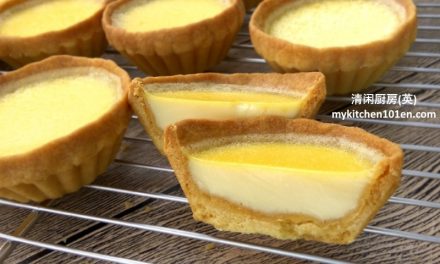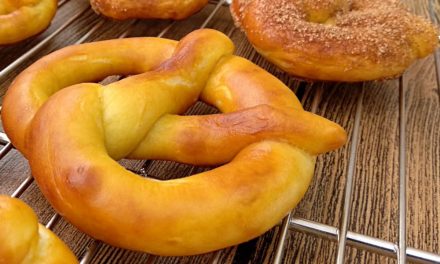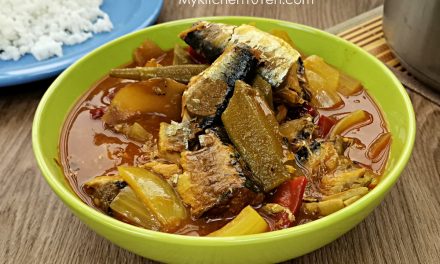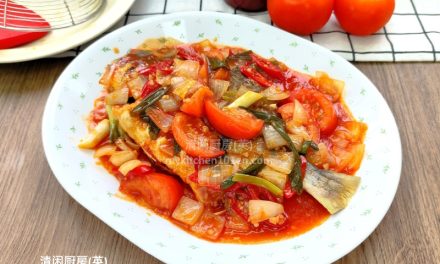Kuih Bangkit is popular in Singapore and Malaysia. The word ‘kuih bangkit’ is a conjunction of two Malay words, ‘bangkit’ meaning to rise and ‘kuih’ meaning cakes or bite-sized snack/dessert foods. It refers to the way this homemade dessert is traditionally made from scratch with just flour and water. No commercial baking ingredients or rising agents are used.
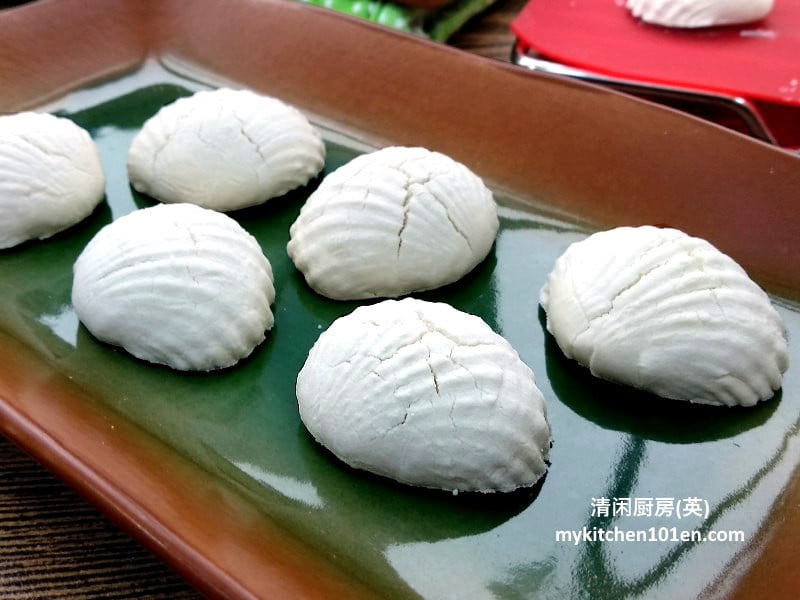
Kuih Bangkit is a popular traditional sweet delicacy and has been around for generations. Enjoy the legacy of a bygone era, Southeast Asia authentic local delicacy. Old-school recipe, and very time-consuming, learn how it is prepared today.
It is also a popular snack during Chinese New Year in Malaysia and Singapore. A special treat for the fans of sweet foods! To yield a fragrant and melt-in-mouth Kuih Bangkit, the first thing you need to do is to get the ingredients prepared well, some of the preparation can be done ahead of time.
Other traditional cookie recipes you might be interested: Traditional Chinese Peanut Cookies, Traditional Coconut Biscuit (Biskut Kelapa)
CHINESE VERSION: 番婆饼 Kuih Bangkit
Kuih Bangkit (Coconut Cream Cookies) | MyKitchen101en
Yields: about 85 pieces
Ingredients:
- 380 g dried sago-tapioca flour mix*
- 140 g fresh coconut cream**
- 120 g icing sugar
- ⅛ tsp fine salt
- 2 egg yolks (grade A/size: L)
*Ingredients for dried sago-tapioca flour mix: (Yields: about 440 g dried flour mix)
- 300 g sago flour
- 200 g tapioca flour
- 5 pcs pandan leaves
**Ingredients for fresh coconut cream: (Yields: about 170 g)
- 350 g fresh grated coconut (from 1 mature coconut)
- 250 ml hot water
Directions for preparing ingredients:
1 *Dried sago-tapioca flour mix: Combine sago flour, tapioca flour and pandan leaves in baking pan, bake in preheated oven at 180°C/355°F for 1 hour 10 minutes. Allow the dried flour mix to cool completely in the oven, about 5-6 hours (cooling in the oven will prevent the dried flour from reabsorbing moisture from air. I usually bake it in the evening and cool in the oven overnight). When fully cooled, discard pandan leaves, sieve flour into airtight container for later use. (Reminder: You may prepare the dried flour mix 1-2 days ahead. Use about 380 g of dried flour mix in the recipe, the extra flour is for dusting the work top and cookies mould.)
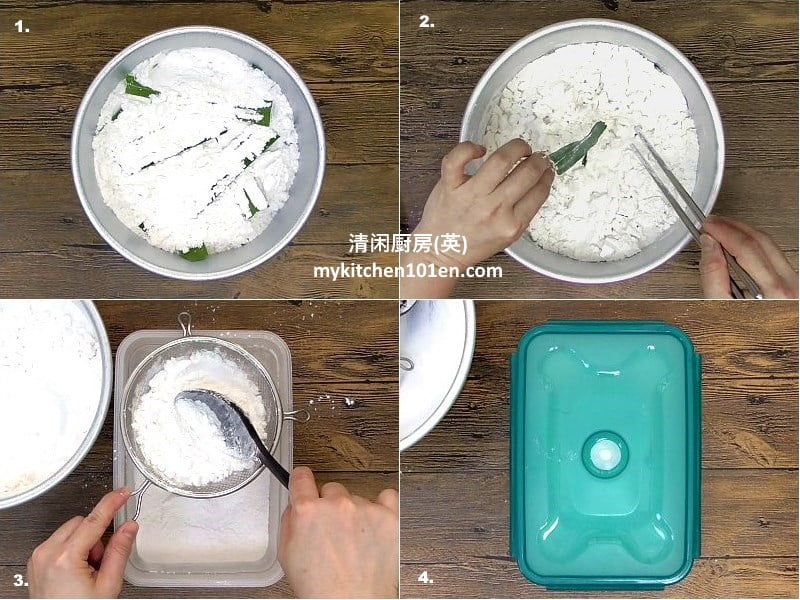
[ads1]
2 **Fresh coconut cream: Add hot water to fresh grated coconut, blend until fine. Extract coconut milk, strain again into a transparent container, keep refrigerated overnight. When chilled overnight, the coconut milk will split into 2 layers, the upper white layer is coconut cream. Scoop out the coconut cream with a ladle, it yields about 170 g, use only 140 g in the recipe.
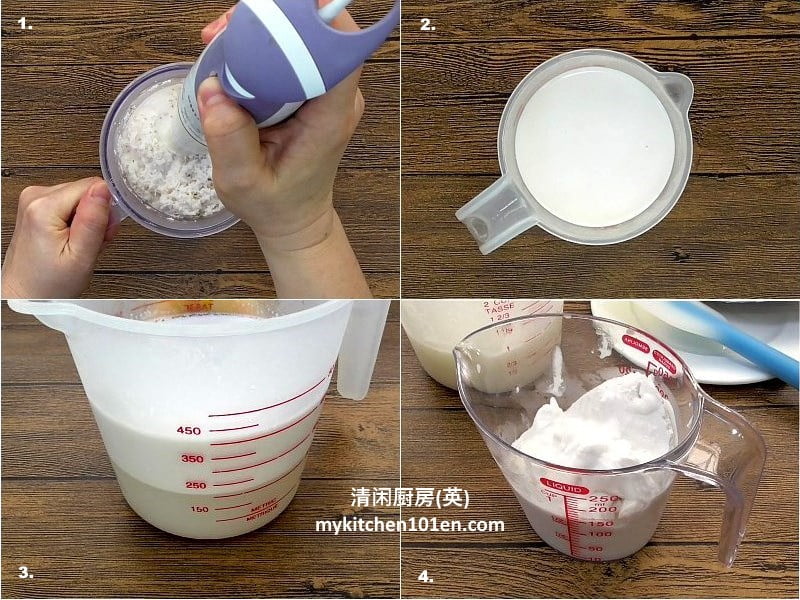
Making Kuih Bangkit:
1 Combine fresh coconut cream, icing sugar and salt in a mixing bowl, whisk over medium speed for about 1 minute until thick.
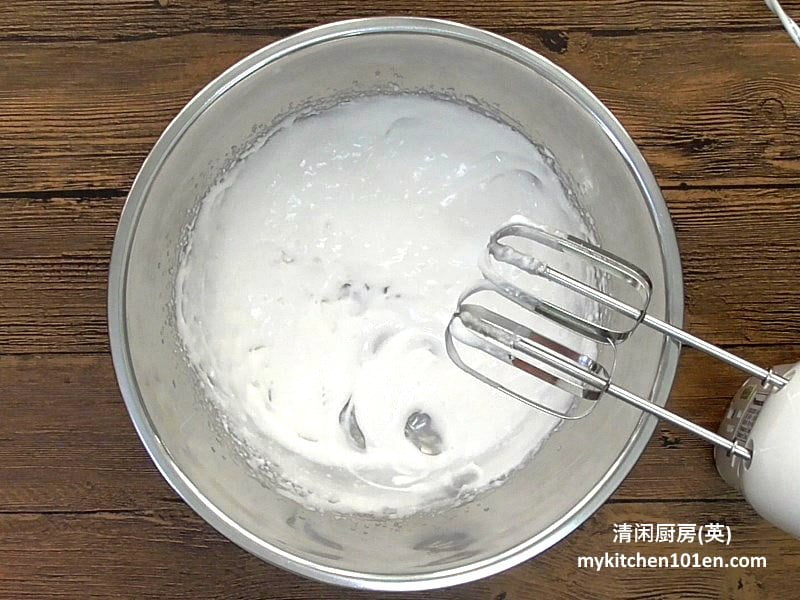
[ads1]
2 Add in egg yolks, whisk for another 30 seconds until blended.
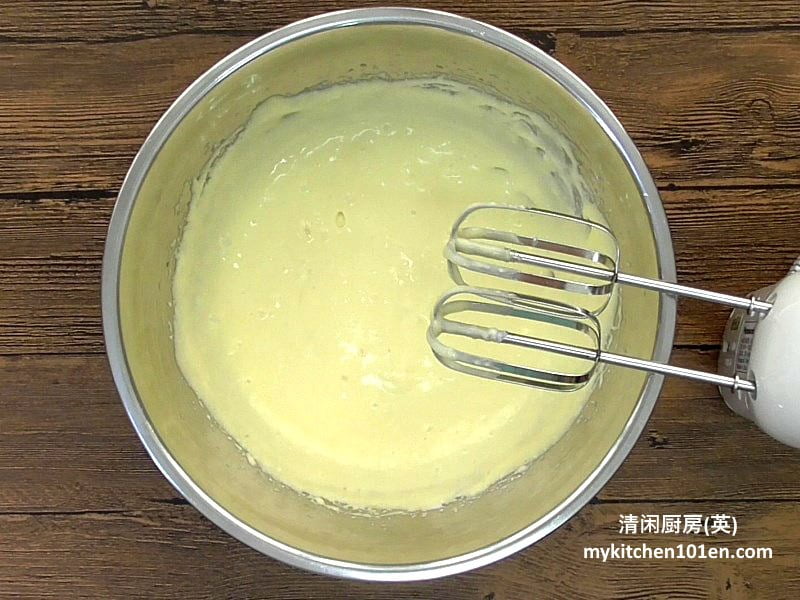
3 Add in dried sago-tapioca flour mix gradually, mix until you have a soft but not sticky dough (cover the dough to prevent it from drying).
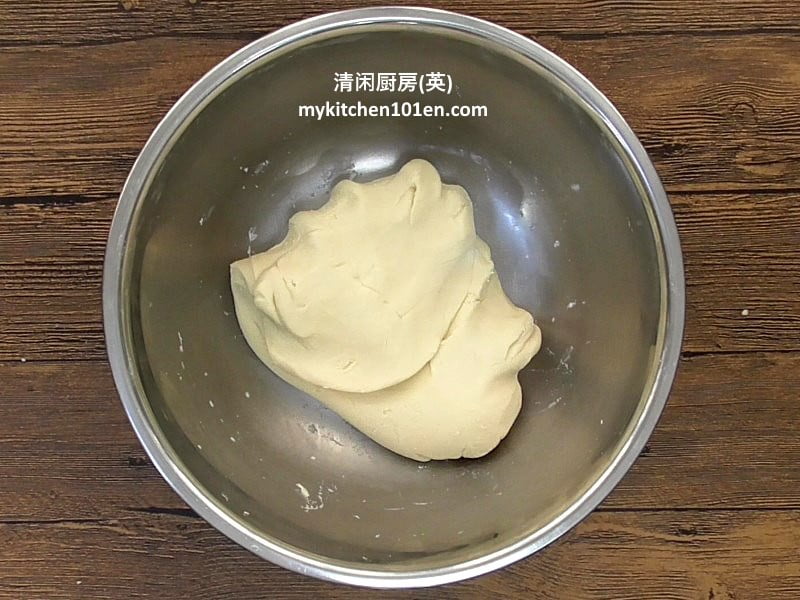
4 Preheat oven to 160°C/320°F.
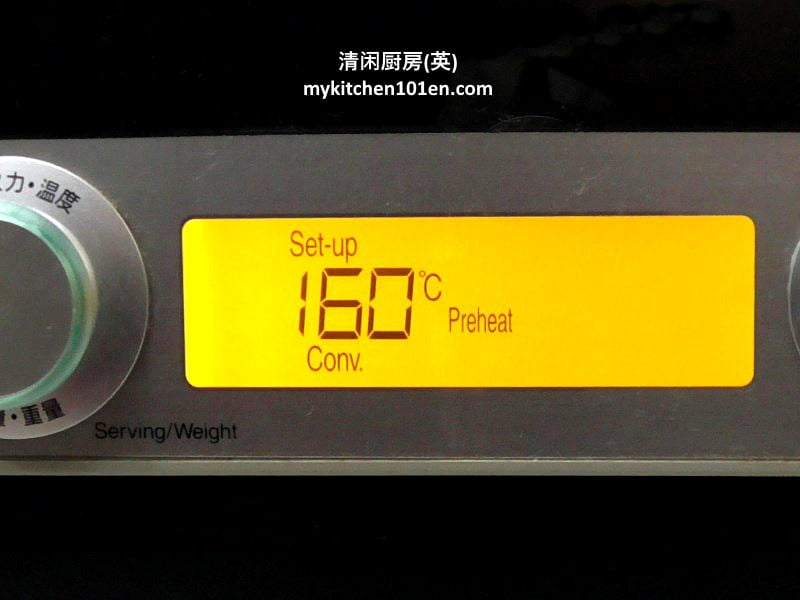
5 Lightly flour work top and cookie mould with dried flour mix (coat mould with dried flour after each cookie).
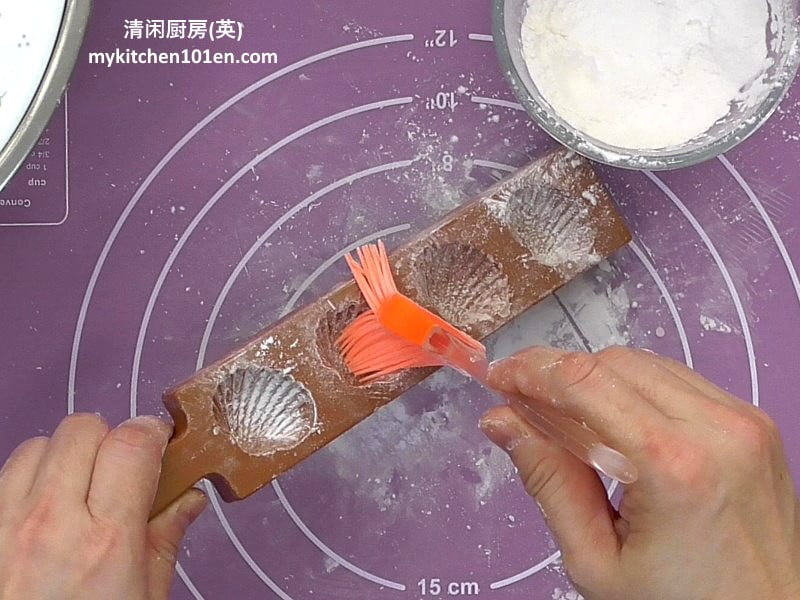
6 Take out a small portion of dough, roll into a log, lightly coat with dried flour, press dough lightly into mould, remove excess dough with dough scraper, tap the mould lightly on work top to unmould the cookie dough.
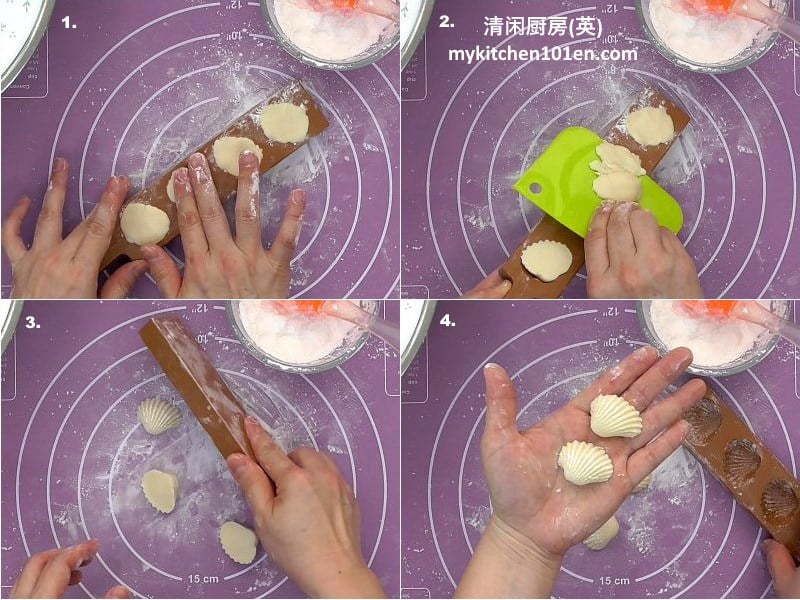
7 Put cut cookie dough on wire rack or baking pan lined with parchment paper or silicon mat.
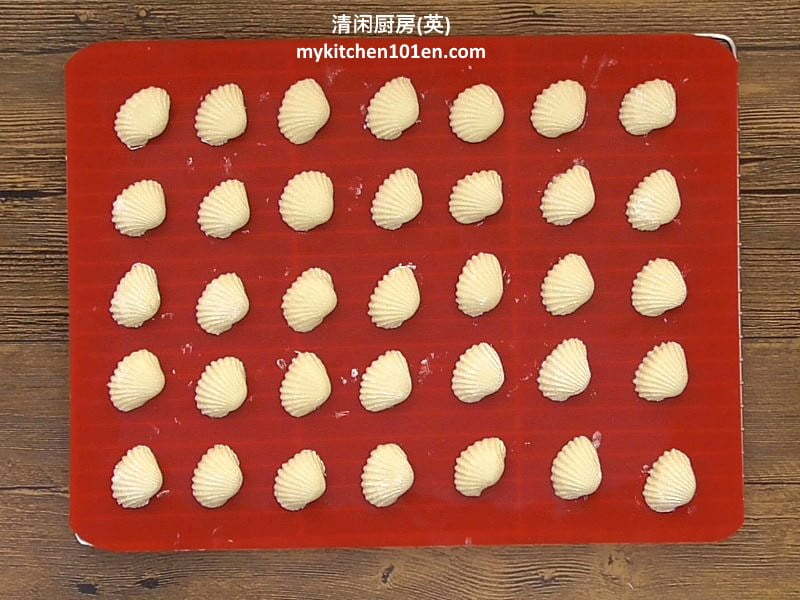
8 Bake at 160°C/320°F for about 25 minutes. Set aside to cool completely after removing from oven.
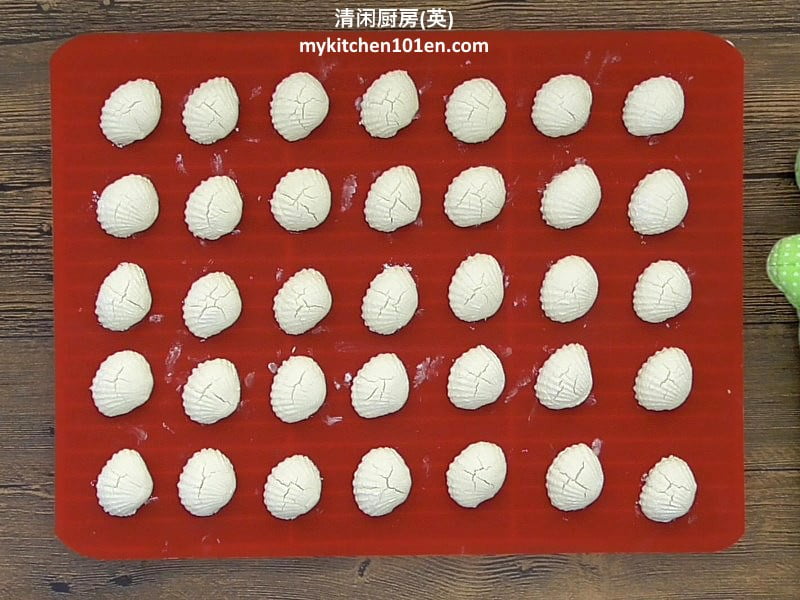
9 Transfer Kuih Bangkit to airtight container when cooled.
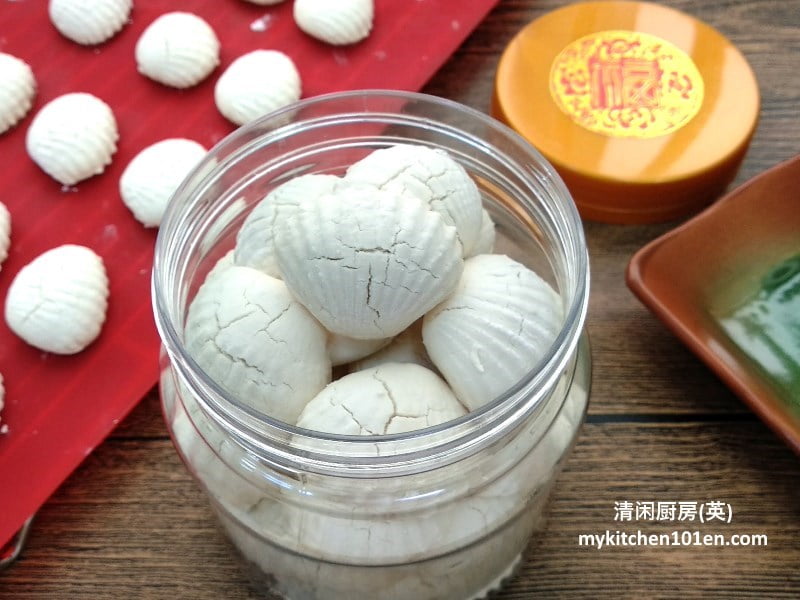
Kuih Bangkit (Coconut Cream Cookies)
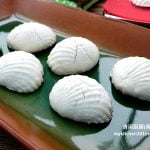
Kuih Bangkit is a popular snack during Chinese New Year. To yield a fragrant and melt-in-mouth Kuih Bangkit, the first thing you need to do is to get the ingredients prepared well.
Ingredients:
- 380 g dried sago-tapioca flour mix*
- 140 g fresh coconut cream**
- 120 g icing sugar
- ⅛ tsp fine salt
- 2 egg yolks (grade A/size: L)
*Ingredients for dried sago-tapioca flour mix: (Yields: about 440 g dried flour mix)
- 300 g sago flour
- 200 g tapioca flour
- 5 pcs pandan leaves
**Ingredients for fresh coconut cream: (Yields: about 170 g)
- 350 g fresh grated coconut (from 1 mature coconut)
- 250 ml hot water
Directions for preparing ingredients:
*Dried sago-tapioca flour mix: Combine sago flour, tapioca flour and pandan leaves in baking pan, bake in preheated oven at 180°C/355°F for 1 hour 10 minutes. Allow the dried flour mix to cool completely in the oven, about 5-6 hours (cooling in the oven will prevent the dried flour from reabsorbing moisture from air. I usually bake it in the evening and cool in the oven overnight). When fully cooled, discard pandan leaves, sieve flour into airtight container for later use.
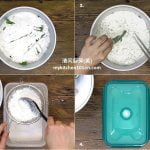
**Fresh coconut cream: Add hot water to fresh grated coconut, blend until fine. Extract coconut milk, strain again into a transparent container, keep refrigerated overnight. When chilled overnight, the coconut milk will split into 2 layers, the upper white layer is coconut cream. Scoop out the coconut cream with a ladle, it yields about 170 g, use only 140 g in the recipe.
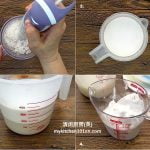
Making Kuih Bangkit:
Combine fresh coconut cream, icing sugar and salt in a mixing bowl, whisk over medium speed for about 1 minute until thick.
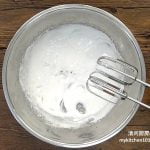
Add in egg yolks, whisk for another 30 seconds until blended.
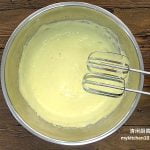
- Add in dried sago-tapioca flour mix gradually, mix until you have a soft but not sticky dough (cover the dough to prevent it from drying).
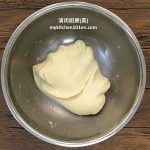
Preheat oven to 160°C/320°F.

Lightly flour work top and cookie mould with dried flour mix (coat mould with dried flour after each cookie).
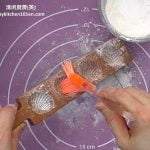
- Take out a small portion of dough, roll into a log, lightly coat with dried flour, press dough lightly into mould, remove excess dough with dough scraper, tap the mould lightly on work top to unmould the cookie dough.
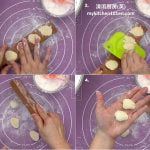
Put cut cookie dough on wire rack or baking pan lined with parchment paper or silicon mat.
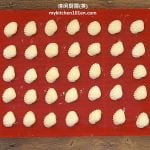
- Bake at 160°C/320°F for about 25 minutes. Set aside to cool completely after removing from oven.
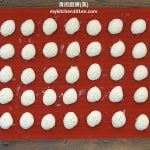
- Transfer to airtight container when cooled.
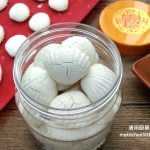
Reminder: You may prepare the dried flour mix 1-2 days ahead. Use about 380 g of dried flour mix in the recipe, the extra flour is for dusting the work top and cookies mould.

